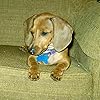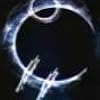Charlie
asked
Peter Cawdron:
How did you come to value science and evidence-based reasoning so much?
Peter Cawdron
Great question. I hope you don't mind a long answer.
I came from a religious background that treated science as though it were just another religious world view, like Buddhism or Hinduism. There was deep suspicion and disdain for anything outside the official interpretation of the Bible. One day, I heard a teaching that talked about a number of people that had corrupted the modern world—Marx, Hitler and Darwin.
As sincere as I was, I valued honesty. I knew Hitler was a bad guy. Starting a world war and killing millions is kind of a giveaway. Communism was another easy "bad," but Darwin? How had Charles Darwin undermined modern life? Didn't he just sail around the world looking at animals? I couldn't honestly agree with Darwin being lumped in with Hitler and Marx, so I figured I'd read On the Origin of Species.
To my delight, I found someone that strived to be honest with their observations about the natural world. I went on to read the Letters of Charles Darwin. In one of them, he said his conclusion, that life had evolved naturally on Earth, felt like, "confessing to a murder." I could relate to that. Rather than finding someone that was evil, I'd found someone curious and honest about the world around them. I couldn't see any reason to condemn that. At that point, I realized what I'd been taught was not honest—I'd been deceived.
It took years, but I found myself wanting to learn. I was no longer satisfied with being told what to think. I wanted to understand. I read broadly, including Darwin's Descent of Man, and picked up several books by Stephen Jay Gould and Richard Dawkins. I came away with a profound sense of awe for natural selection and the evolution of life on Earth. I'd bought into well-meaning, sincere lies for far too long.
It was Ben Goldacre's book Bad Science that helped me understand how science is often misrepresented in the media/society and that we should reason based on evidence.
I've always loved science fiction. After having my head stuck in the sand like an ostrich for decades, I realized there was an opportunity to make science the hero in sci-fi stories. This might be a little controversial, but as much as I loved the writing of Michael Crichton, all too often he wrote anti-science fiction (Prey, Jurassic Park, State of Fear, etc). I realized he influenced the pessimistic attitudes that cause people to doubt good science. I decided I could do better. I could help make the world a better place by writing science-positive stories.
Science isn't perfect, but when it's done right it's the best means we have for exploring and understanding the world around us. Science is honest. Without a bunch of scientists, we'd still be in the dark ages. I think that's something to celebrate.
When readers pick up one of my books, I hope they walk away with a better appreciation for how science has shaped our world for the better.
I came from a religious background that treated science as though it were just another religious world view, like Buddhism or Hinduism. There was deep suspicion and disdain for anything outside the official interpretation of the Bible. One day, I heard a teaching that talked about a number of people that had corrupted the modern world—Marx, Hitler and Darwin.
As sincere as I was, I valued honesty. I knew Hitler was a bad guy. Starting a world war and killing millions is kind of a giveaway. Communism was another easy "bad," but Darwin? How had Charles Darwin undermined modern life? Didn't he just sail around the world looking at animals? I couldn't honestly agree with Darwin being lumped in with Hitler and Marx, so I figured I'd read On the Origin of Species.
To my delight, I found someone that strived to be honest with their observations about the natural world. I went on to read the Letters of Charles Darwin. In one of them, he said his conclusion, that life had evolved naturally on Earth, felt like, "confessing to a murder." I could relate to that. Rather than finding someone that was evil, I'd found someone curious and honest about the world around them. I couldn't see any reason to condemn that. At that point, I realized what I'd been taught was not honest—I'd been deceived.
It took years, but I found myself wanting to learn. I was no longer satisfied with being told what to think. I wanted to understand. I read broadly, including Darwin's Descent of Man, and picked up several books by Stephen Jay Gould and Richard Dawkins. I came away with a profound sense of awe for natural selection and the evolution of life on Earth. I'd bought into well-meaning, sincere lies for far too long.
It was Ben Goldacre's book Bad Science that helped me understand how science is often misrepresented in the media/society and that we should reason based on evidence.
I've always loved science fiction. After having my head stuck in the sand like an ostrich for decades, I realized there was an opportunity to make science the hero in sci-fi stories. This might be a little controversial, but as much as I loved the writing of Michael Crichton, all too often he wrote anti-science fiction (Prey, Jurassic Park, State of Fear, etc). I realized he influenced the pessimistic attitudes that cause people to doubt good science. I decided I could do better. I could help make the world a better place by writing science-positive stories.
Science isn't perfect, but when it's done right it's the best means we have for exploring and understanding the world around us. Science is honest. Without a bunch of scientists, we'd still be in the dark ages. I think that's something to celebrate.
When readers pick up one of my books, I hope they walk away with a better appreciation for how science has shaped our world for the better.
More Answered Questions
About Goodreads Q&A
Ask and answer questions about books!
You can pose questions to the Goodreads community with Reader Q&A, or ask your favorite author a question with Ask the Author.
See Featured Authors Answering Questions
Learn more






Feb 06, 2021 05:22PM · flag
Mission ...more
Feb 07, 2021 06:30PM · flag
Feb 08, 2021 01:29AM · flag